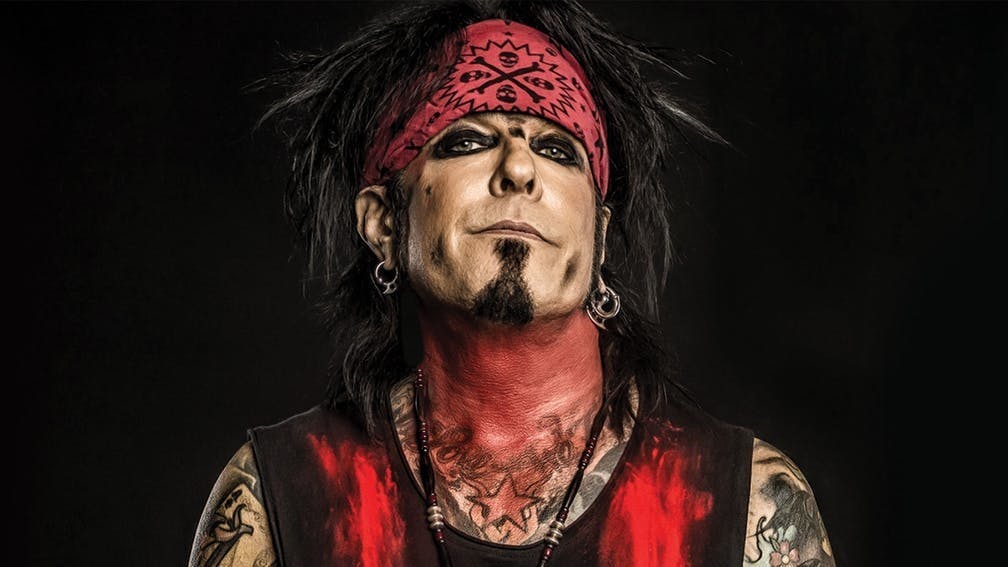As Mötley Crüe are portrayed in The Dirt, it’s hard not to look at them and think, ‘These people are assholes.’ Is that fair?
“(Laughs) Well, yeah, I mean there is some behavioural stuff in there that is just dumb. We were stubborn and determined and wild as fuck, and there was nothing out there that was like us. We could do anything that we wanted to, because we were the new thing that was happening. It was the lifestyle – it was sex and drugs and musicianship and songwriting. It was a different time. We left to go on tour with Ozzy [Osbourne, in the U.S. in 1984] and we really never came home. And when we did come home we were in the studio. We did a cover of a Brownsville Station song [Smokin’ In The Boys Room] and Home Sweet Home, which were all over MTV, then we were out playing in arenas, and sometimes in stadiums. So people ask us about the Sunset Strip scene, and the truth is that we really didn’t know what was happening because we were kind of gone. I don’t mean any offence to the bands who were there, but to me they just seemed very samey. They gave raw, dirty rock’n’roll a bad name. And we didn’t want to be a part of that. When people say, ‘Oh, those guys were assholes, they didn’t really play fair with others,’ well, the reason for that is because we didn’t really want to play fair with others. And I know that makes me sound like an asshole, but at least I own it.”
When things got out of hand, your touring life consisted of concerts, cocaine, alcohol, pills, strip clubs and private jets. How is it possible to function like that?
“Well, it isn’t! We had to cancel a European tour because I had a bad drug problem that I had to handle. We ran out of steam and we hit the wall head-on. It was damaging to the band and it was damaging to our career. And we felt that in making the movie [The Dirt] we didn’t want to gloss over that stuff and make a film that made everyone feel good or like the band – that wouldn’t be honest film-making. We wanted to make it warts’n’all. We wanted to include Vince’s beautiful daughter losing her life. We wanted to include the accident that traumatised the band, and which killed Razzle, affected members of his band and the other drivers who were involved in the accident – there was a lot of pain from that. I don’t really understand how we survived that, other than we were just stronger than we thought.”
Do you look at the sexual aspects of the film, and of the band at the time, and think that it would be unacceptable now?
“Yeah. But, listen, if we left that stuff out it would be dishonest film-making. I was thinking about this: if there was a movie made about the Colonial period and it left out the burning of the witches, what kind of film would that be? In 2019, burning witches is obviously bad, but I think we all know that. When it comes to our movie, we understand that the way that society was at that time [in the ‘80s], girls and guys acted in different ways. It was a different time. We’ve grown up from that. But the one thing we never did, and I need to say this, is we never abused our power. That’s something that I think is important to know. Whatever we did was consensual. It was wild and it was fun – I mean, every band was going fucking crazy – but what if we omitted that because it’s not politically correct in 2019?”
Bearing all of that in mind, do Mötley Crüe have anything to fear from the #MeToo movement?
“No. Here’s the thing: if anybody was abusing power, that’s one thing. But it was a time when everyone was living a life that is very different from today’s. That was then and this is now. No, we don’t have anything to worry about. But we would have done the wrong thing if we had made a film that worried about presenting us in a way that was politically correct.”
